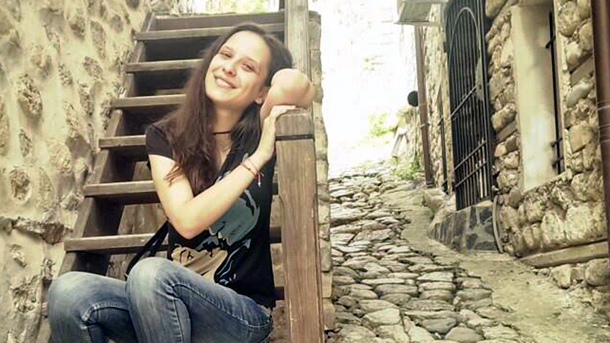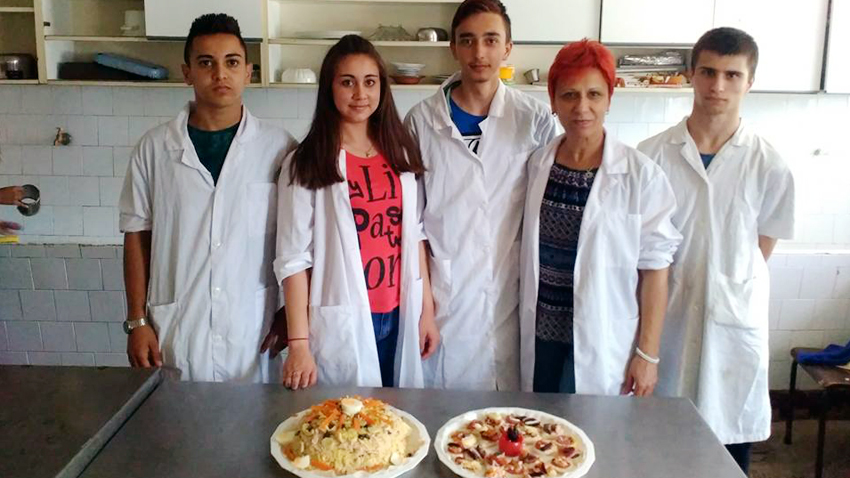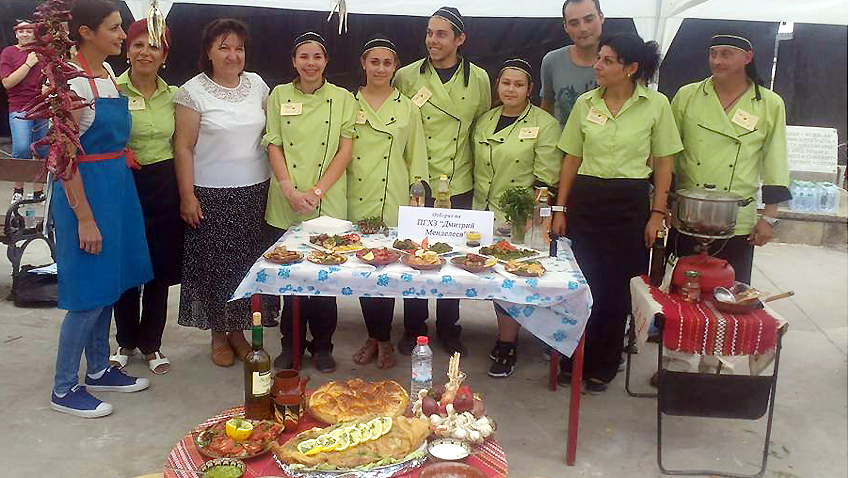Kristina Bozhidarova is a young and ambitions Bulgarian woman. She is only twenty six years old and believes that she can make the world a better place, and is confident that all people should work towards the fulfillment of that goal. She found an associate in Together in Class program, which aims at attracting young and skillful people from different professions who are willing to join the education field. Kristina applied for the position of history teacher and later got the job.
 “I was motivated by the idea that all children should have access to high-quality education, regardless of their parents' profession and incomes, because education is a value, not a privilege.”
“I was motivated by the idea that all children should have access to high-quality education, regardless of their parents' profession and incomes, because education is a value, not a privilege.”
Kristina Bozhidarova has been lecturing history at a high school for nutrition and agriculture in the Danube town of Lom. She faced the challenge to deal with the capricious character of the teenagers. However, Kristina is full of enthusiasm.
“My pupils belong to many problematic families, where education is not really a value. Many of my pupils' parents are working abroad which makes communication with them difficult. My colleagues are extremely ambitions people as well. They literally take children to school from the street. We manage to keep those pupils at school, because we are devoted to our profession. The children are wonderful. Each one of them wants to be heard and I try to let them speak about their problems in my classes”
Kristina Bozhidarova counts on openness in the communication with her pupils:
“I speak sincerely about things. Children notice quickly whether those who communicate with them are sincere, or not. We communicate openly on all topics, including history. I try to learn as much about them as possible and believe that openness is the right formula. ”

According to data of Bulgaria's Ministry of Education and Science, a record high number of 4,189 Bulgarian pupils (8.73% of all pupils) received poor marks at this year's matriculation in Bulgaria, which made former Minister of Education and Science Anelia Klisarova say the following: An army of illiterate people is growing in Bulgaria and the country's education has hit the bottom. What changes Bulgaria's authorities should make in that country's educational system, in order to stir the interest of Bulgarian children in education?
“In my view, education must correspond entirely to the pupils' interests. The new technologies should be used more in Bulgaria's schools. Besides, we must predispose our children and allow them to reveal their potential. Then, we can speak of any concrete results.”
One of Kristina's tasks is to teach children to work in team and express their own opinion.
“I teach at a high school of agriculture and nutrition. The children studying at that school already chose their profession. History is not only facts, it is much more. It makes you think and I teach my pupils to follow their personal interests. One of my colleagues at school inspired me to teach history in a different manner. He asked one of his pupils to write a rap song about WW1. Then I decided that I could also use similar methods. My pupils have different talents and want to show them in public”, the young Bulgarian teacher explains passionately.

At the end of each school year the pupils traditionally organize a food festival. This time it will be based on history. What do cuisine and history have in common? For instance the delicious meal Boeuf Stroganoff made of beef, mushrooms and double cream was invented in Russia especially for Russian Earl Stroganoff by his French chef in the second half of the 19th century. The meal gained huge popularity in the USA, Japan and many other countries during WW2 and the Cold War, Kristina Bozhidarova went on to say. Thus, pupils learn history much easier and classes are more entertaining.
English version: Kostadin Atanasov
Photos: courtesy of Kristina Bozhidarova"The place in France where we draw together the future of our children in Bulgarian" - this is how Yaneta Dimitrova described her workplace - the Bulgarian Sunday School "Ivan Vazov" in Paris a year ago in a post on a social network. It is one of the 396..
21 February is International Mother Language Day, first proclaimed as such by UNESCO and later adopted by the UN General Assembly. The right to study and to speak one’s mother tongue, or native language, is a basic human right and a civil right..
152 years after the death of the Apostle of Freedom, the personality of Vasil Levski continues to excite Bulgarians, regardless of whether they are in the country or abroad. The Embassy of Bulgaria in Athens, Greece , has extended an invitation to the..
Exactly 3 years ago, on February 24, Russia’s invasion of Ukraine began – an event that woke up Europe 77 years after the end of World War II and called..

+359 2 9336 661
